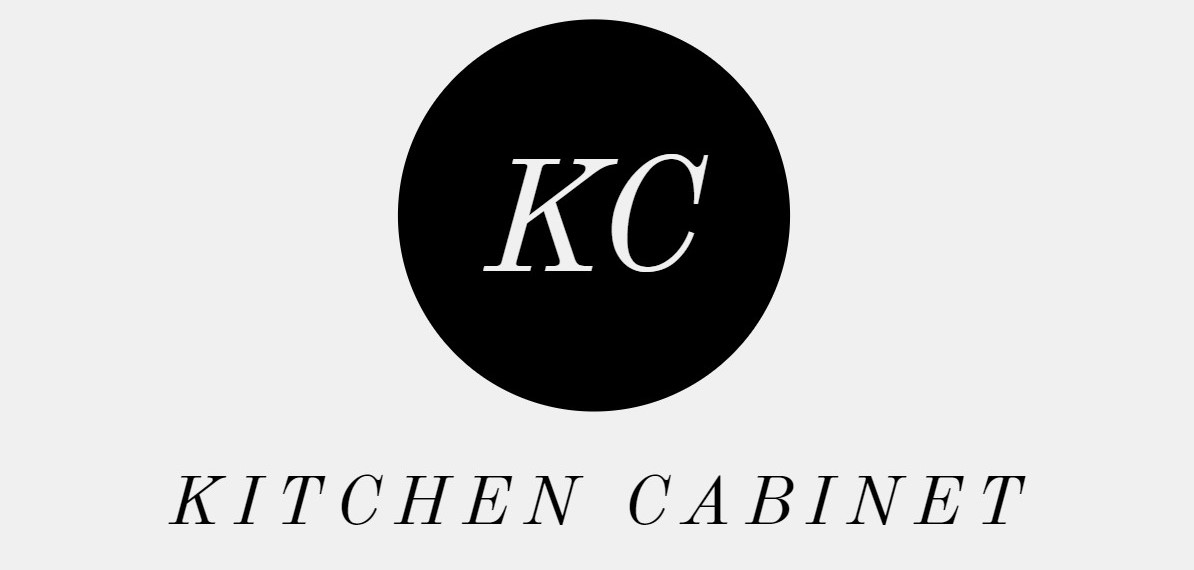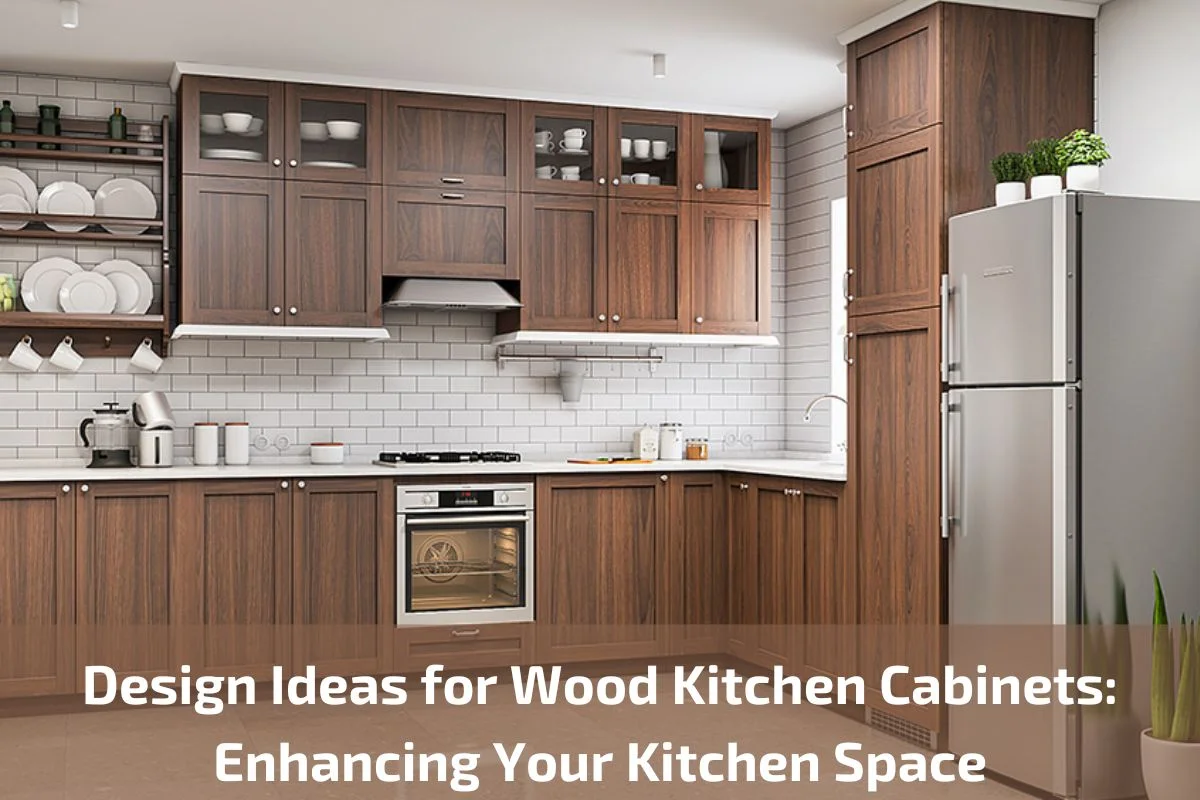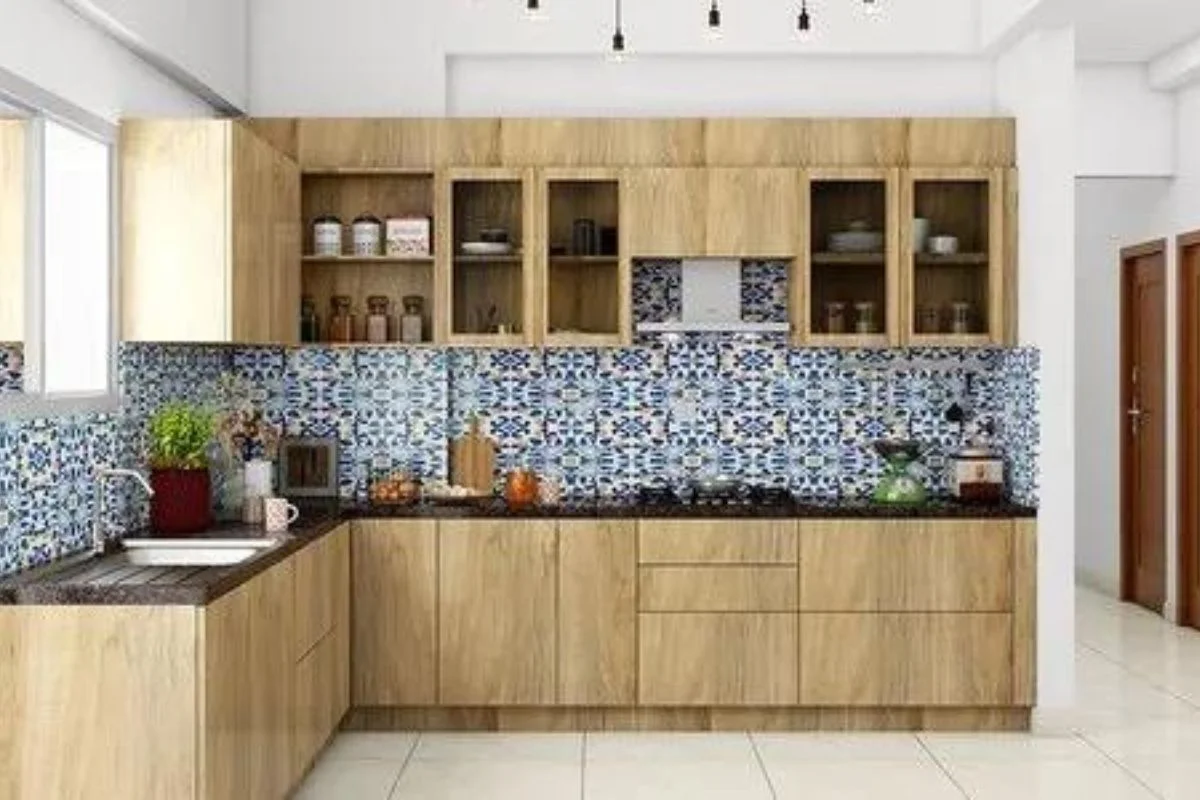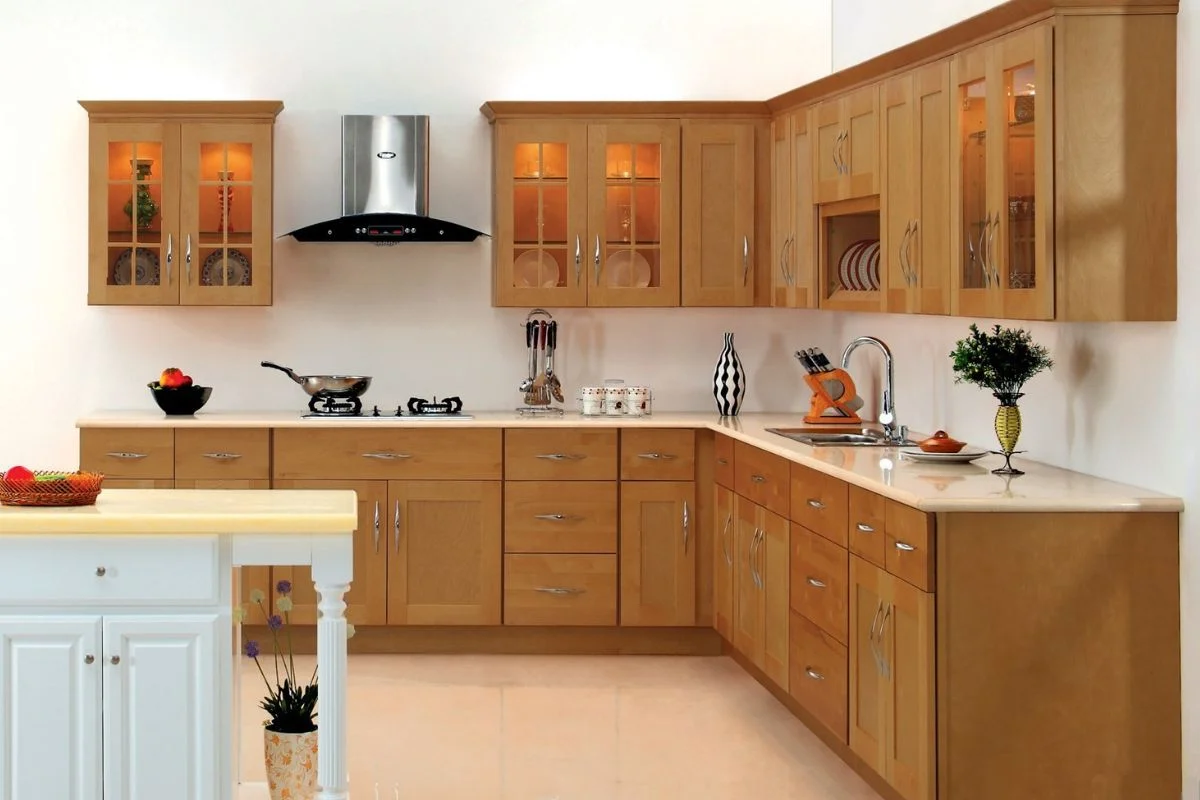Brief Overview of the Topic: Wood Kitchen Cabinets
Wood kitchen cabinets are a staple feature in kitchens around the world, known for their timeless elegance, warmth, and versatility. As essential components of kitchen design, wood cabinets not only provide ample storage but also contribute to the overall aesthetics and ambiance of the space. From traditional to modern styles, wood cabinets offer a wide range of options in terms of species, finishes, and designs, allowing homeowners to customize their kitchens to suit their preferences and personal style. In this article, we’ll delve into the benefits, trends, and considerations related to wood kitchen cabinets, exploring why they remain a popular choice for homeowners and designers alike.
Importance of Kitchen Cabinets in Home Design and Functionality
Kitchen cabinets play a crucial role in both the design and functionality of a home’s kitchen. Here’s why they are considered essential:
Storage Solution: Kitchen cabinets provide valuable storage space for organizing and storing cookware, dishes, utensils, pantry items, and small appliances. By keeping these items neatly tucked away, cabinets help maintain a clutter-free and organized kitchen, enhancing both visual appeal and efficiency.
Space Optimization: Cabinets are designed to maximize available space, utilizing vertical and horizontal dimensions to make the most of kitchen layouts. They can be customized with features like pull-out shelves, lazy Susans, and drawer dividers to optimize storage and accessibility, even in small or awkwardly shaped kitchens.
Aesthetic Appeal: Kitchen cabinets significantly contribute to the overall aesthetic of the kitchen. The choice of cabinet style, material, finish, and hardware can influence the design theme, whether it’s classic, contemporary, rustic, or transitional. Cabinets serve as focal points and anchor elements in kitchen design, setting the tone for the entire space.
Value Addition: Well-designed and high-quality kitchen cabinets can add value to a home, making it more attractive to potential buyers. Cabinets that are durable, functional, and aesthetically pleasing are often considered desirable features in real estate listings, contributing to the overall value and appeal of the property.
Organization and Efficiency: Properly designed cabinets facilitate organization and efficiency in the kitchen, making meal preparation, cooking, and cleanup tasks more convenient and enjoyable. With designated storage areas for different items, homeowners can easily locate what they need and streamline their kitchen routines.
Customization Possibilities: Kitchen cabinets offer endless customization possibilities, allowing homeowners to tailor their kitchen storage solutions to their specific needs, preferences, and lifestyle. From choosing cabinet styles, materials, and finishes to incorporating innovative storage solutions and accessories, customization options abound in kitchen cabinet design.
Benefits of Wood Kitchen Cabinets:
Wood kitchen cabinets offer a multitude of benefits that make them a popular choice among homeowners and designers. Here are some key advantages:
Timeless Elegance: Wood kitchen cabinets exude a timeless elegance that adds warmth and character to any kitchen space. The natural beauty of wood grains and textures creates a welcoming and inviting atmosphere, enhancing the overall aesthetic appeal of the kitchen.
Versatility in Design: Wood cabinets come in a wide range of styles, finishes, and wood species, offering versatility in design options. Whether you prefer traditional, rustic, modern, or transitional aesthetics, there is a wood cabinet style to suit every taste and kitchen design theme.
Durability and Longevity: High-quality wood cabinets are durable and built to last for years, standing up well to everyday wear and tear in the kitchen. With proper care and maintenance, wood cabinets can maintain their beauty and functionality for decades, making them a long-term investment in the home.
Customization Options: Wood cabinets can be easily customized to meet the specific needs and preferences of homeowners. From choosing the wood species and finish to incorporating personalized design elements such as decorative moldings, hardware, and accessories, customization options abound with wood cabinets.
Environmental Sustainability: Wood kitchen cabinets are often sourced from sustainable forestry practices, making them an environmentally friendly choice for eco-conscious homeowners. By opting for wood cabinets certified by organizations such as the Forest Stewardship Council (FSC), homeowners can support responsible forest management and conservation efforts.
Ease of Repair and Refinishing: In the event of damage or wear over time, wood cabinets can be easily repaired and refinished to restore their appearance and functionality. Minor scratches, dents, or stains can be sanded down and refinished, extending the lifespan of the cabinets without the need for costly replacements.
Increased Home Value: Well-maintained wood cabinets can enhance the resale value of a home, making it more attractive to potential buyers. Wood cabinets are often considered desirable features in real estate listings, contributing to the overall appeal and perceived value of the property.
Considerations When Choosing Wood Kitchen Cabinets:
When selecting wood kitchen cabinets for your home, there are several important considerations to keep in mind to ensure you make the right choice. Here are key factors to consider:
Budget: Determine your budget for kitchen cabinets, including installation costs, and choose wood species and finishes that align with your budget constraints. Keep in mind that certain wood species and customization options may come at a higher price point.
Wood Species: Consider the characteristics and properties of different wood species available for kitchen cabinets. Common options include oak, maple, cherry, walnut, and birch, each with its own unique grain patterns, colors, and durability levels.
Cabinet Style: Decide on the style of kitchen cabinets that best suits your design preferences and kitchen layout. Whether you prefer traditional raised-panel cabinets, sleek and modern flat-panel cabinets, or rustic and distressed cabinets, choose a style that complements the overall aesthetic of your kitchen.
Finish and Stain: Choose the right finish and stain for your wood cabinets to achieve the desired look and protection. Options range from clear finishes that highlight the natural beauty of the wood to stains that add color and depth. Consider factors such as durability, ease of maintenance, and compatibility with your kitchen decor.
Quality and Construction: Inspect the quality and construction of the wood cabinets, paying attention to details such as joinery, hardware, and drawer glides. Look for solid wood construction or high-quality veneers, sturdy dovetail or mortise-and-tenon joints, and smooth-operating drawer slides and hinges for long-lasting durability and functionality.
Maintenance Requirements: Consider the maintenance requirements of the wood cabinets, including cleaning, polishing, and refinishing. Choose finishes and materials that are easy to clean and maintain, especially in high-traffic areas such as the kitchen.
Compatibility with Kitchen Decor: Ensure that the wood cabinets complement the overall design and color scheme of your kitchen, including countertops, backsplash, flooring, and appliances. Consider how the wood cabinets will interact with other elements in the space to create a cohesive and harmonious look.
Customization Options: Explore customization options for wood cabinets, such as decorative moldings, hardware, and accessories, to personalize your kitchen and enhance functionality. Determine which customization features are important to you and prioritize them in your cabinet selection process.
Installation and Maintenance Tips for Wood Kitchen Cabinets:
Proper installation and regular maintenance are essential for ensuring the longevity and beauty of wood kitchen cabinets. Here are some tips to help you install and maintain your cabinets effectively:
Installation Tips:
Hire a Professional: Consider hiring a professional contractor or carpenter to install your wood kitchen cabinets. A professional installer will have the expertise and tools necessary to ensure that the cabinets are installed correctly and securely.
Follow Manufacturer Guidelines: Read and follow the manufacturer’s installation instructions carefully. Each cabinet brand may have specific guidelines and recommendations for installation, including proper anchoring, leveling, and spacing.
Check for Level and Plumb: Use a level and plumb bob to ensure that the cabinets are installed level and plumb. Proper alignment is crucial for the doors and drawers to operate smoothly and for the overall appearance of the cabinets.
Secure Cabinets Properly: Use sturdy mounting hardware to secure the cabinets to the wall studs or support brackets. Proper anchoring is essential to prevent the cabinets from sagging or coming loose over time.
Allow for Expansion and Contraction: Wood cabinets can expand and contract with changes in humidity and temperature. Leave adequate space between cabinets and walls, and use expansion joints where necessary to accommodate wood movement.
Maintenance Tips:
Regular Cleaning: Wipe down the exterior surfaces of the cabinets regularly with a soft cloth dampened with mild soap and water. Avoid using abrasive cleaners or harsh chemicals that can damage the wood finish.
Dry Cabinets Immediately: After cleaning, dry the cabinets immediately with a clean, dry cloth to prevent water damage and warping. Pay special attention to areas around sinks, dishwashers, and stovetops where moisture may accumulate.
Protect Cabinet Surfaces: Use coasters, placemats, and trivets to protect cabinet surfaces from heat, moisture, and scratches caused by hot pots, pans, and utensils. Avoid placing hot or wet items directly on the cabinet surfaces.
Avoid Excessive Sunlight: Direct sunlight can cause wood cabinets to fade and discolor over time. Install window treatments or use UV-blocking film on windows to minimize exposure to sunlight in the kitchen.
Inspect and Repair Damage: Regularly inspect the cabinets for any signs of damage, such as cracks, scratches, or loose hardware. Repair minor damage promptly to prevent further deterioration and maintain the integrity of the cabinets.
Refinish as Needed: Over time, the wood finish on kitchen cabinets may become worn or damaged. Consider refinishing the cabinets periodically to restore their appearance and protect the wood surfaces from moisture and stains.
Conclusion:
In conclusion, wood kitchen cabinets are not only functional storage solutions but also integral elements of kitchen design that add warmth, character, and timeless elegance to the space. Proper installation and regular maintenance are essential for preserving the beauty and durability of wood cabinets, ensuring that they remain a focal point of the kitchen for years to come.





